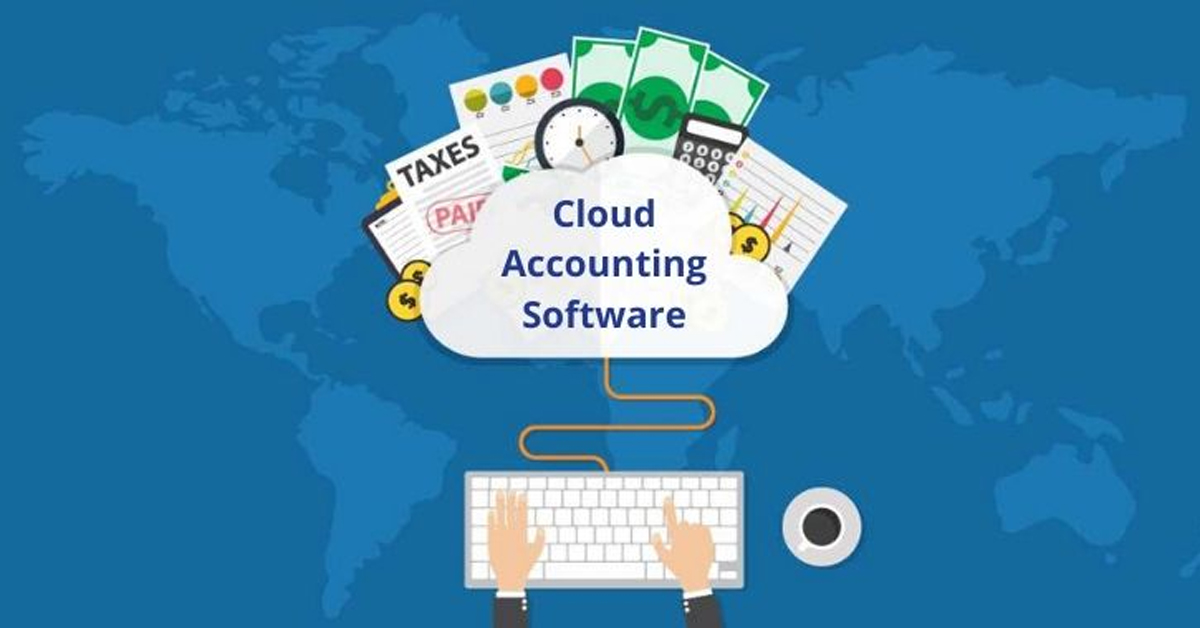There is a contrast between the two terms Bookkeeping and auditing, let us comprehend what is Bookkeeping and auditing, their cycles, and the distinction between the two.
Bookkeeping
Recording of monetary exchanges in a legitimate way identified with the business activity of a substance is known as Bookkeeping. Bookkeeping is the lasting chronicle of monetary exchanges.
In an appropriate way in the books of records of a substance so their monetary impact on the matter of element can be seen. Bookkeeping is administrative in nature.
Bookkeeping is generally done by junior workers of the substance. The majority of the substances these days use PCs for Bookkeeping instead of recording them physically.
Bookkeeping of an element relies upon its Bookkeeping framework. Bookkeeping is the reason for bookkeeping. It is on the grounds that it is answerable for the correct account of monetary exchanges.
While, Bookkeeping includes characterization, summing up, and announcing of monetary exchanges. It includes the readiness of source records for all the monetary exchanges of the element.
Cycle of Bookkeeping
- Distinguishing monetary exchanges
- Recording of monetary exchanges
- The readiness of record accounts
- The readiness of preliminary equilibrium
Bookkeeping incorporates recording, ordering, summing up monetary exchanges in an appropriate way. It manages basic financial estimation. It is in this way a more extensive idea than Bookkeeping.
Bookkeeping is a piece of bookkeeping. Just monetary exchanges which can be communicated as far as cash are recorded.
Accordingly, bookkeeping is so important to empower partners to know the monetary situation of an element for the period. It is worried about summing up the recorded monetary exchanges. Additionally, it empowers the board to plan different sorts of reports.
Advantages of Bookkeeping
1.Make /Control Budget
Bookkeeping enables entrepreneurs to make and control organization financial plans. At the point when you realize how your cash is coming in and going out, you are more ready to screen business spending plans.

An organization without financial plans resembles a boat floating adrift without a chief; bookkeeping guarantees your business isn’t setting out toward a Titanic-style ice sheet.
2. Estimate Revenues
Entrepreneurs who focus on their bookkeeping are educated and better ready to estimate incomes for their organization. Income gauges assist you with understanding whether current advertising endeavors are working or whether changes should be made.

On the off chance that you can’t figure incomes for your organization, you won’t know whether it is protected to make business-related uses.
3. Significant Business Purchase Decisions
Talking about consumptions, exact bookkeeping enables entrepreneurs to consider the consequences of settling on significant business buying choices. From another structure rent to organization vehicles, significant uses can significantly affect month to month income.

At the point when you screen your organization’s bookkeeping consistently, you can settle on an educated choice on buying new resources for your organization.
4. Track Business Expenses
Bookkeeping encourages you to follow your operational expense. Regardless of whether you are going to industry meetings or filling your vehicle to settle on deals decisions, observing your operational expense is a fundamental piece of claiming an organization.

Little costs can accumulate after some time; a savvy entrepreneur tracks these consumptions consistently by means of their bookkeeping programming. It’s a decent practice to snap an image of each receipt you get and send it legitimately to your bookkeeping programming.
5. Screen Business Financial Health
Bookkeeping causes you to screen the soundness of your organization. An excessive number of consumptions without a sufficient money flood means something bad for any organization.

Whenever point by point bookkeeping isn’t essential for your usual way of doing things, in what capacity will you actually know whether your organization is succeeding or falling flat? Putting resources into definite bookkeeping causes you keep your finger on the beat of your organization’s monetary wellbeing.
6. Work force Decisions
Precise bookkeeping records can likewise assist you with settling on faculty choices. Realizing when to welcome on extra staff, or when to lay off representatives, can mean the contrast between having a productive year and being in the red or not.

At the point when you see how much your business is spending on finance (counting finance charges), you are more ready to settle on development choices for your organization.
7. Precise Record Keeping For Financial Institutions And/Or Taxes
Bookkeeping additionally causes you save exact records for monetary establishments and duty preparers. Applying for a business advance will require nitty gritty organization financials.

In the event that you don’t give exact business books to your expense arrangement group, a total financial duty review could be in your future. In addition to the fact that accounting helps you develop your organization, it forestalls harming occasions like financial reviews.
8. Screen Business Growth
The capacity to screen business development is one of the top advantages of itemized business bookkeeping. At the point when you know your resources, liabilities, and available incomes, you can undoubtedly follow the development of your organization.

You’ll know whether deal targets are being met, regardless of whether your web-based media and substance advertising techniques are working, and whether your records receivable and creditor liabilities commitments are being met.
Auditing
Auditing alludes to the basic assessment of the monetary records or explanations of a business or an association. It is required for all different legitimate substances.
Auditing is completed after the last planning of the financial reports and records. auditing includes completing the assessment and legal review of the fiscal reports, and offering a reasonable and fair-minded input on whether the budget summaries and records give a valid and reasonable impression of the real monetary situation of the firm.
The evaluators, generally outer, do the assignment of auditing under the arrangements of the appropriate laws in the interest of investors or controllers. The extent of auditing work is dictated by the appropriate laws.
Auditing has two fundamental classes viz. inner review and outside review. The inward review is led by an inside evaluator, generally a representative of the association. The outer review is led by an outside inspector, designated by the investors.
Auditing can be directed inside by workers of the association, or remotely by an external firm. Auditing performed by outside gatherings on privately owned businesses can be amazingly useful in eliminating any inclination with regards to the condition of an organization’s financials.
Auditing search for what can be known as a “material mistake” in proclamations on a specific item. They help give partners a feeling of exactness while concerning the condition of the subject reviewed and can help empower them to improve, more educated choices with respect to the subject evaluated.
At the point when outsiders perform auditing, the assessment on whatever is evaluated can be authentic and legitimate without it sway day by day work connections. Practically all organizations take a review once every year, though considerably bigger organizations can get reviews month to month.
For certain organizations, reviews are a legitimate commitment because of the amazing motivating forces to deliberately misquote monetary data trying to submit misrepresentation. For some open exchanged organizations, reviewers are utilized as an asset to assess the adequacy of inside controls on monetary reports.
Benefits of Auditing
Auditing is a best practice that guarantees the development of public organizations. A considerable lot of the partners of the business are budget reports of the review.
Auditing thinks about the spot of considerable testing and the need to confirm it. It thinks about observing the arrangement of rules. It specifies the limit of the expenses so that individuals can have earlier insinuation about the auditing. Here are a portion of the upsides of a review program or the advantages of auditing.
1. Admittance to the capital market
General society needs to stay under the security trades and the necessities are given under it.

When the auditing does the records that review handily acknowledged by the Government, for example, Central banks, public specialists. This conveys more prominent power principles for the record to approve.
2. Lower capital expense
This has decreased data that partners with the budget reports that have lower loan fees and profit for their speculations. Once in a while this movement gives encouraged settlements and cases of an accomplice.

By playing out the cycle of auditing fakes and mistakes can be redressed on schedule.
3. Hindrance to misrepresentation and failure
Auditing that has completed must be inside the guaranteed accounts office. In the case of misfortune, the property that will keep up an asset is moved.

In the event that on the off chance that the general population has a different proprietorship plan, at that point the cases must be settled from the protection claims.
4. Operational upgrades
A free evaluator can control and accomplished working effectiveness inside the customer’s association. It impacts the staffs alongside the individuals from the customer’s association.
5. Proprietorship

In the event that a public organization manages the tryout they can attempt to console the partners about the records that looked after appropriately.
6. Amalgamating individuals from the organization
The idea of every association will be to characterize the objectives. This blend encourages in joining individuals to cooperate as a group.

This blend or solidarity can discovered during the cycle of auditing.
7. Estimation of business
The occasion of procurement needs to recognize inside the administration and by the business group.

It interrelates with the settlement of cases, retirement reserves, and so on If there should be an occurrence of loss of property, one needs to improve the exercises with virtues.
8. Social affair data about benefit or misfortune
This social affair will help in talking about the benefit and loss of the organization.

Here workers can reveal their thoughts whereupon they are missing and how might they beat those impediments.
9. Privacy
During the cycle of the outside review, there is more private data, for example, interior representative compensation, CPF, and so on.

It could be huge for the individual to find out about the association. It is on the grounds that the evaluator makes the thought and leads the gatherings that hold with respect to the review.
The distinction between Bookkeeping and Auditing:
Bookkeeping and Auditing Definition
Here are the definition of Bookkeeping and auditing. Bookkeeping is tracking the monetary exchanges and planning budget summaries, yet auditing is basic assessment of the fiscal reports to offer any input on their reasonableness.
Bookkeeping and Auditing Timing
Bookkeeping is done on a consistent premise with an everyday recording of monetary exchanges; while Auditing is fundamentally an intermittent cycle and completed after the arrangement of definite records and budget reports, typically on a yearly premise.
Bookkeeping and Auditing Starting
Bookkeeping begins normally where Bookkeeping closes; while Auditing consistently begins where bookkeeping closes.
Bookkeeping and Auditing Past budget
Bookkeeping fundamentally focuses on the current monetary exchanges and exercises; while auditing focuses on the past budget summaries.
Bookkeeping and Auditing Inclusion
Bookkeeping covers all exchanges, records and articulations having monetary ramifications; while Auditing mostly covers last fiscal summaries and records.
Bookkeeping and Auditing Level of Detail
Bookkeeping is exceptionally itemized and catches all subtleties identified with monetary exchanges, records, and proclamations; while Auditing, by and large, uses fiscal summaries and records on example premise.
Bookkeeping and Auditing Sort of Checking
Bookkeeping includes checking and confirming subtleties related with every fiscal report and records; while auditing might be helped out through test checking or test checking.
Bookkeeping and Auditing Core interest
The essential focal point of bookkeeping is to precisely record and present every single monetary exchange and explanations; while the essential focal point of auditing is to confirm the exactness and dependability of the budget summaries and to decide whether the financial reports give a genuine image of the real monetary situation of the substance.
Bookkeeping and Auditing Objective
The goal of bookkeeping is to decide the monetary position, productivity, and execution; while the goal of auditing is to add believability to the budget summaries and reports of the organization.
Bookkeeping and Auditing Legitimate Status
Bookkeeping is represented by Bookkeeping Standards with some level of carefulness; however, auditing is administered by Standards on Auditing and doesn’t give a lot of adaptabilities.
Bookkeeping and Auditing Performed by
Bookkeeping is performed by bookkeepers; while Auditing is performed by and large by qualified reviewers.
Bookkeeping and Auditing Status
Bookkeeping is normally completed by an inner representative of the organization; yet auditing is done by an outer individual or free office.
Bookkeeping and Auditing Arrangement
Bookkeeper is selected by the administration of the organization; while the evaluator is designated by the investors of the organization, or a controller.
Bookkeeping and Auditing Capability
A particular capability isn’t obligatory for a bookkeeper; yet some particular capability is necessary for an evaluator.
Bookkeeping and Auditing Compensation Type
Bookkeeping is completed by an organization worker who gets a compensation; while a particular auditing charge is paid to the inspector.
Bookkeeping and Auditing Compensation Fixation
Bookkeeper’s compensation, i.e., pay is fixed by the administration; while evaluator’s expense is fixed by the investors.
Bookkeeping and Auditing Extension Determination
The extent of bookkeeping is dictated by the administration of the organization; while the extent of auditing is controlled by the pertinent laws or guidelines.
Bookkeeping and Auditing Need
Bookkeeping is essential for all associations in the everyday or routine activities; while auditing isn’t important in the everyday tasks.
Bookkeeping and Auditing Expectations
Bookkeeping plans budget summaries for example Pay Statement or P/L, Balance Sheet, Cash Flow Statement, and so forth; while auditing gives Audit Report.
Bookkeeping and Auditing Report Submission
Records are submitted to the administration of the association; while review report is submitted to the investors.
Bookkeeping and Auditing Direction
Bookkeepers may make proposals for the improvement of bookkeeping and related exercises to the administration; though auditing typically doesn’t make recommendations, besides sometimes with explicit prerequisites, for example improvement in inner controls.
Bookkeeping and Auditing Risk
The bookkeeper’s risk for the most part finishes with the arrangement of the records; while auditing has an obligation after readiness and accommodation of the review report.
Bookkeeping and Auditing Investors Meetings
A bookkeeper doesn’t go to the investor’s gathering; while auditing may go to the investor’s gathering.
Bookkeeping and Auditing Proficient Misconduct
An Accountant isn’t typically indicted for proficient unfortunate behavior; though auditing can be arraigned for proficient wrongdoing according to the appropriate legitimate method.
Bookkeeping and Auditing Evacuation
A bookkeeper can be taken out by the administration; while an auditor can be eliminated by the investors.
Following are the contrasts among bookkeeping and Auditing:
- Bookkeeping is a specialty of recording the business exchanges in the books of unique sections and the records. Bookkeeping implies the gathering of records so that one is in a situation to know the situation of the business.
- The auditing implies the check of vouchers to discover their precision and give a valid and reasonable view in regard to conclusive records. The essential work is gotten done right manager and bookkeeper while the last little detail is given by the inspectors.
- Where crafted by a bookkeeper closes, crafted by reviewer starts.
- A clerk and a bookkeeper need to record the exchange in the books of records while an evaluator needs to check and confirm such exchanges and accounts and send a report to the people who selected him.
- The clerk or the bookkeepers are the representatives of the business firm while the inspector is an autonomous character.
- The bookkeeper can give the data to the administration according to the records kept up by them. Regularly, he doesn’t offer and recommendation or guidance to the board while the auditing can offer proposals or guidance based on their finding from the records.
- Auditing should be a certified bookkeeper for example contracted bookkeeper however if there should be an occurrence of a bookkeeper it isn’t obligatory. He/she could possibly be a sanctioned bookkeeper.


